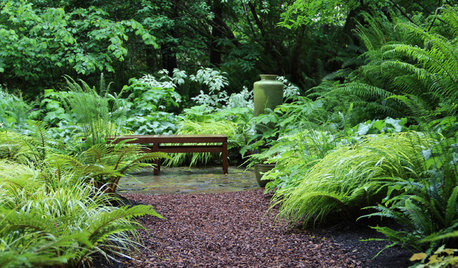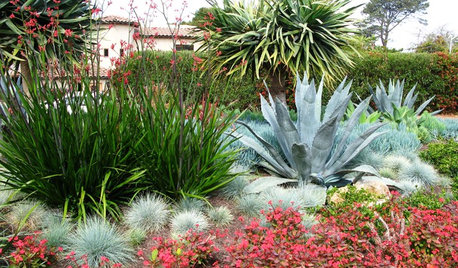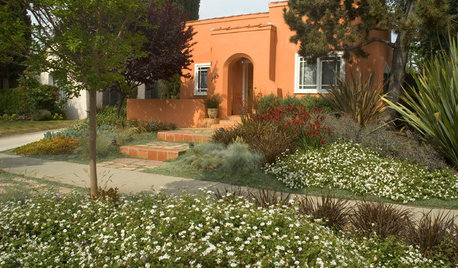Fertilizers mean soil replacement?
eddiepwns
10 years ago
Related Stories

GARDENING GUIDESGet on a Composting Kick (Hello, Free Fertilizer!)
Quit shelling out for pricey substitutes that aren’t even as good. Here’s how to give your soil the best while lightening your trash load
Full Story
GARDENING GUIDESHow to Stop Worrying and Start Loving Clay Soil
Clay has many more benefits than you might imagine
Full Story
GARDENING GUIDES10 Solutions for Soggy Soil
If a too-wet garden is raining on your parade, try these water-loving plants and other ideas for handling all of that H2O
Full Story
GARDENING GUIDESThe Poop Scoop: Enrich Your Soil With Good Old Manure
Get over the ick factor already — this natural super-ingredient for soil has so many benefits, you'll wonder why you ever went chemical
Full Story
GARDENING GUIDESGardening Solutions for Dry, Sandy Soils
Has your desert or beachy site withered your gardening creativity? Try these ideas for a beautiful, easy-care landscape
Full Story
GARDENING GUIDESGrow a Beautiful Garden in Alkaline Soil
Got alkaline soil? Learn how to manage it and the many beautiful plants that will thrive in this ‘sweet’ soil
Full Story
GARDENING GUIDESCommon Myths That May Be Hurting Your Garden
Discover the truth about fertilizer, soil, staking and more to keep your plants healthy and happy
Full Story
GARDENING GUIDESHow to Pick a Mulch — and Why Your Soil Wants It
There's more to topdressing than shredded wood. Learn about mulch types, costs and design considerations here
Full Story
GARDENING GUIDESGet the Dirt on Your Garden’s Soil
Understand how your soil supports your plants so you can ensure your garden’s success
Full Story
GREAT HOME PROJECTSHow to Replace Your Lawn With a Garden
New project for a new year: Lose the turfgrass for energy savings, wildlife friendliness and lower maintenance
Full StoryMore Discussions






klem1
Kimmsr
Related Professionals
Lakeland Landscape Contractors · Amesbury Landscape Contractors · Lehigh Acres Landscape Contractors · Lexington Landscape Contractors · Los Banos Landscape Contractors · Pompton Lakes Landscape Contractors · Rockwall Landscape Contractors · Vineyard Landscape Contractors · West Orange Landscape Contractors · Maple Heights Landscape Contractors · Bensenville Landscape Contractors · Beavercreek Decks, Patios & Outdoor Enclosures · Detroit Decks, Patios & Outdoor Enclosures · Prichard Decks, Patios & Outdoor Enclosures · Sun Lakes Decks, Patios & Outdoor Enclosureslazy_gardens
toxcrusadr
gardengal48 (PNW Z8/9)
eddiepwnsOriginal Author
Kimmsr
eddiepwnsOriginal Author
toxcrusadr
gardengal48 (PNW Z8/9)
klem1
gardenper
Kimmsr
toxcrusadr